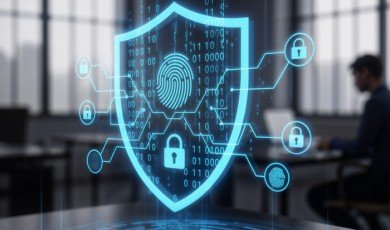
In the world of security agencies and bodyguard services, effective communication is as vital as any access control system or surveillance technology. Whether it's managing multinational clients, coordinating with local authorities, or de-escalating situations with individuals from diverse cultures, the role of interpretation in the security sector cannot be undermined. Language is often the first barrier in high-stakes environments, and overcoming it with professionalism saves time—and can even save lives only if it do not differs from translation.
As security demands become increasingly global, security agencies are embracing technologies and solutions like on site interpretation services, over the phone interpretation services, and remote interpretation services. These services ensure seamless, secure communication in any situation, from corporate meetings to urgent field operations. This guide will walk you through these vital resources, with a focus on practical advantages for security professionals.
Main Research: Tailoring Interpretation Services to Security Needs
1. On Site Interpretation Services: Face-to-Face Trust
On site interpretation services bring a professional interpreter directly to your location, whether it’s a corporate event, a high-profile negotiation, or a crisis situation. This mode of interpretation fosters trust and immediate understanding, allowing security professionals to engage with clients, staff, and third parties effectively.
For bodyguards and security agencies, face-to-face interpreting is particularly valuable in the following scenarios:
- Briefings and training sessions: Ensure that all personnel comprehend operational procedures, emergency protocols, and client requirements, regardless of language barriers.
- VIP and international clients: Offer elite-level service by providing clear, respectful communication during close protection details, high stakes meetings, and travel.
- Incident response: Quickly defuse misunderstandings during confrontations or emergencies where clear instruction must transcend cultural or linguistic differences.
On-site interpreters can adapt to the nuances of body language, tone, and situational tension, all of which play large roles in security settings. Learn more about how this approach can benefit your operation at on site interpretation services.
2. Over the Phone Interpretation Services: Agility When Every Second Counts
Sometimes, having an interpreter physically present is not feasible—this is where over the phone interpretation services step in. These services provide instant access to professional interpreters, offering security agencies agility and cost savings in mission-critical moments.
Some key use cases for phone interpretation in the security sector include:
- Emergency calls: When responding to incidents involving non-English speakers, over the phone interpreters allow dispatchers and teams to communicate vital information without delay.
- Remote property checks: If guards or security operators encounter language barriers during patrols, immediate interpretation over the phone ensures clear reporting and efficient action.
- Client communication: Quickly connect with international clients for scheduling, updates, or urgent clarification to maintain superior customer service.
Over-the-phone interpretation is highly flexible, supporting a wide range of languages and available 24/7. This is crucial for security operations that require round-the-clock readiness. Find out more about this agile solution at over the phone interpretation services.
3. Remote Interpretation Services: Modern Security for a Digital Age
As security teams become more tech-savvy, remote interpretation services are growing in popularity. Instead of an interpreter being on-site or on the phone, remote interpretation (often conducted via video) leverages secure, encrypted online platforms. This solution is ideal for:
- Virtual security briefings: Coordinate with international teams or clients in real-time, with the added assurance of visual cues that video interpreting delivers.
- Screening and hiring: Conduct remote interviews or vetting of personnel across the globe, ensuring clear, accurate assessment of candidates’ backgrounds and intentions.
- Client onboarding: Deliver a professional, personalized onboarding experience for new clients and staff, wherever they are based.
Remote interpretation adds layers of convenience and security, as all communications can be conducted through encrypted platforms. Additionally, the video aspect fosters rapport and understanding—especially important in sensitive security contexts. For details on how this innovative approach stands apart, explore remote interpretation services.
4. The Technology Behind Secure Multilingual Communication
Interpretation isn’t just about words—it’s also about keeping communications confidential and protected. Leading interpretation service providers employ strict protocols, including NDAs, secure digital platforms, and interpreters trained in confidentiality. Security agencies must partner with only vetted, reliable providers who understand the specific privacy and real-time decision-making needs of the security sector.
The evolution of interpretation services mirrors advances in other security features and technology for guards: encryption, real-time alerts, and user authentication are just as essential for interpreters as for surveillance systems and access controls. For a deeper dive into the mechanics behind professional mediation, visit the language interpretation page on Wikipedia.
5. Best Practices: Choosing and Implementing Interpretation Services in Security Operations
To get the most out of on-site, phone, or remote interpreting, security companies should:
- Conduct needs analysis: Identify where communication gaps exist—client meetings, public events, or internal training.
- Set confidentiality standards: Require interpreters to sign NDAs and understand the nuances of operational security.
- Test technology: Ensure that remote and phone platforms are encrypted, reliable, and user-friendly for both interpreters and team members.
- Train your team: Provide personnel with basic best practices on working with interpreters to maximize clarity and minimize risk.
- Integrate with existing SOPs: Make interpreter services a core part of your security protocols, just like surveillance or threat assessments.
Conclusion: Communication Breaches Are Security Breaches
Security is as much about information as it is about physical protection. As threats become more global and clients more diverse, the ability to communicate seamlessly in any language is now a non-negotiable standard. On-site, over-the-phone, and remote interpretation services each play a critical role in keeping security operations running smoothly, reliably, and discreetly.
By integrating these services into your security strategy, you do more than break language barriers—you show your clients and team that you are prepared for any scenario, anywhere in the world. Learn more about embracing the future of secure, multilingual communication and elevate the quality and reach of your security services today.
In summary, whether it’s face-to-face trust, phone-based agility, or the digital flexibility of remote interpretation, choosing the right approach makes every layer of your security operation stronger—and smarter.








